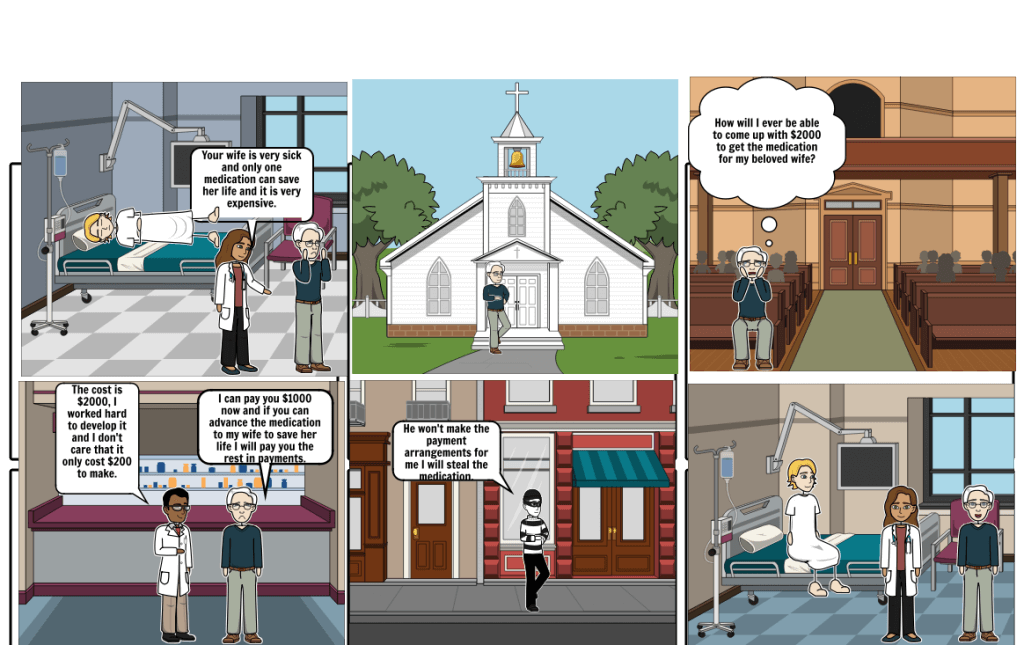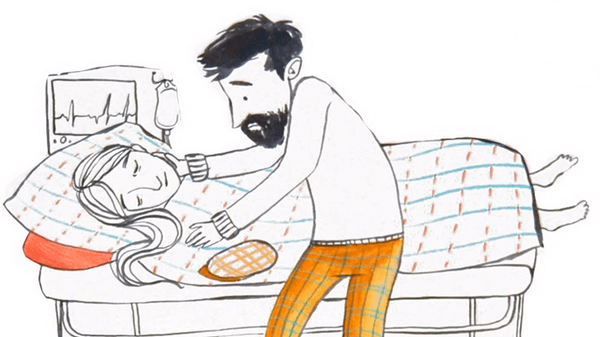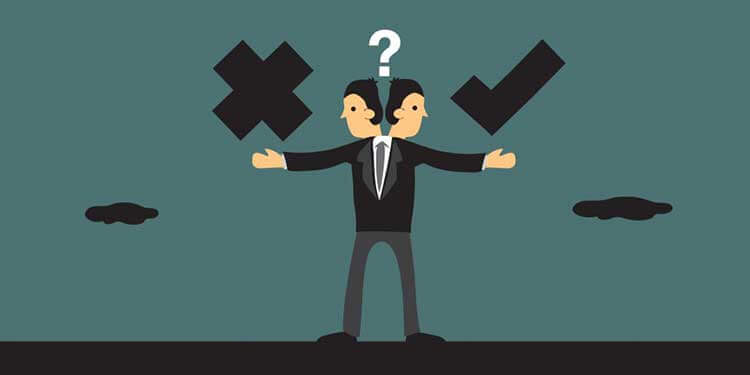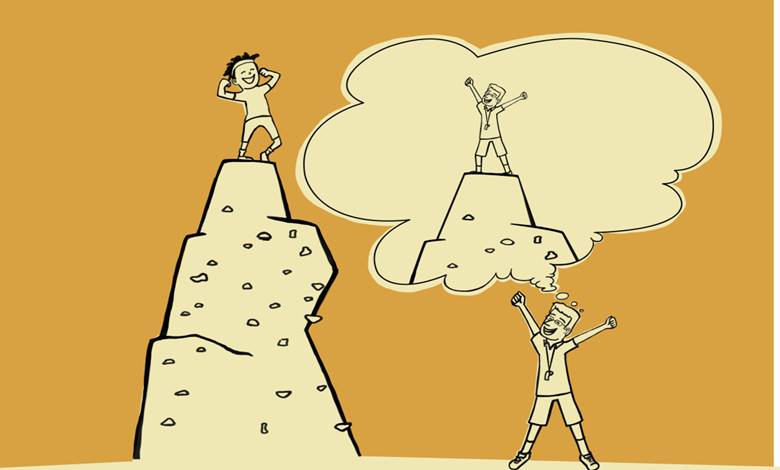Our Moral Progress: Heinz Dilemma
Have you ever thought about what morality is and how it develops in this world where right and wrong are determined by us / our societies? Morality; Looking at the dictionary definition, it appears as a concept that enables us to distinguish and label the good and the bad in religious, philosophical and social terms. So how do we learn this concept of good-bad or right-wrong? How is our moral progress?

Famous psychologist Kohlberg wondered about this and made studies. In one of his studies, he directed some stories to his participants of all ages (children, young and old) and examined the moral judgments in the responses of the participants.
Then let’s examine one of Kohlberg’s famous stories, the ‘Heinz Dilemma’, on you and find your moral progress:

A woman who is dying of cancer has a new and special medicine that can save her. But the pharmacist wants more money for the medicine than it costs. Heinz, the woman’s husband, has trouble finding the money. It applies all solutions, begs the pharmacist, tries to collect donations, but cannot find the necessary money. Finally he steals the medicine for his dying wife. Do you think Heinz’s behavior is morally correct or wrong?
Now examine the answers that can be given and find the answer that suits you best. Let’s see what age you are in your moral development according to Kohlberg.
1a) * He should not steal the medicine because if he is caught, he will go to jail. * He should steal the drug, if he has acquaintances from top officials or if he is not caught, it will not be a problem. If he can watch his wife die, he can go to an investigation.
1b) * He should not steal the medicine because his wife may be a bad person / his wife may die until he is released / It is not his fault that his wife has cancer. * He should steal the medicine because his wife would not leave Heinz alone, he would pull the house away / if he was caught, he would return the medicine, he wouldn’t be punished too much / he should risk some punishment to save his wife.
2a) * He should not steal the medicine because everyone thinks he is guilty and no one looks at his face again. * He should steal the medicine because he steals for a good cause, so he does not fall into a bad situation in people’s eyes, he is thought to be a good man.
2b) * He should not steal the medicine, even if he steals it, he suffers a guilty conscience because he violates the law when he goes to jail. * He should steal the medicine because this is the only thing he can do to save his wife, he must be an honorable man.
3a) * He should not steal the medicine, even if he is going to steal it, he is not a guilty man, he is obliged, but the laws should not be broken even in extraordinary situations. * Laws that should steal medicine are not so important in such cases, everyone has the right to live.
3b) * He should not steal the medicine because there are other people like him who need medicine, and if everyone tries to steal it, it could be a disaster. * He should steal the medicine because it is not morally wrong to steal in such a situation that Heinz will either steal or save his wife’s life, human life is more important.

These answers are the answer given to the story of Heinz dilemma presented by Kohlberg and the summed up of its derivatives. Each answer has a moral explanation of what we are headed for, and Kohlberg has age grouped in these answers. Now keep in mind the answer you find suitable for you and find your place in Kohlberg’s moral theory:
If you feel close to one of the answers in options 1a or 1b, then you are stuck in the moral development of children aged 9-10. In other words, the “Pre-Traditional Morality” phase. In general, children at this age gave answers as in these options because there is an orientation to punishment (1a) and reward (1b) in their answers. And children often grow up with a punishment and reward orientation – sometimes an item reward for getting a high grade on the exam, or a go to your room penalty for misbehaving. So this is the only orientation one could know at that age. When you read again, you can see that the penalty and reward are actually reflected in the 1a and 1b options.
The beginning of adolescence corresponds to the answers in the 2a or 2b options according to Kohlberg, that is, these are the answers given by the people in that period. The orientations that arise in these options are: “What does the slam say?”, The good boy and the authoritarian orientation. As you read in 2a, there is a sense of “What do people say?” And the perception that being a good person is important. In 2b, the authorities are at the forefront. So if you choose one of these options, you are in the early stages of moral development. In addition, this stage is called ‘Traditional Morality’.
According to Kohlberg’s theory, the answers most of us choose should be in 3a or 3b. Unless you are a 9-10 year old child or an individual in early adolescence reading this article.
The “Post-Traditional Morality” phase includes the answers in 3a and 3b and is considered to be abstract reasoning. Kohlberg assumes that this can also be done from adolescence. Options include social contract (3a) and ethical principle (3b) orientation. In other words, while pursuing the rule of law in the social contract orientation, fundamental human rights are also at the forefront – see. Answers to 3a-. In the ethical principle orientation, equality and universal ethical principles are taken into consideration and sometimes these principles may contradict the law – see. 3b answers-.

Perhaps an answer you choose now might say that your morals are the same as a 9-10 year old child or an early adolescent. Perhaps you have chosen an answer that reflects your exact age, with abstract reasoning, and your moral development is quite normal according to Kohlberg’s theory. But no matter how much the Heinz Dilemma in theory makes you brainstorm, what’s missing is the mismatch of our thoughts and behaviors.
That is to say, people can make decisions or make judgments more easily in thought, but when it comes to reflecting thought to behavior, things can change a lot. In fact, this can be explained simply by the ‘keyboard artistism’ reflected in social media today. Since it is extremely easy to express our opinions on social media, we can face many cyberbullying, but when we look at the real world, people are not that open, rude or offensive. Kohlberg made this mistake while establishing his theory, and he only asked the Heinz dilemma intellectually and got the answer. However, if people had actually stayed in that state, their responses and behaviors might not match. He might have had to implement the answer he called immoral today, tomorrow. So now imagine that you are in Heinz’s place, what would your ‘moral’ behavior be if you really lived in such a situation?
Source: Introduction to Psychology – Smith


